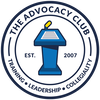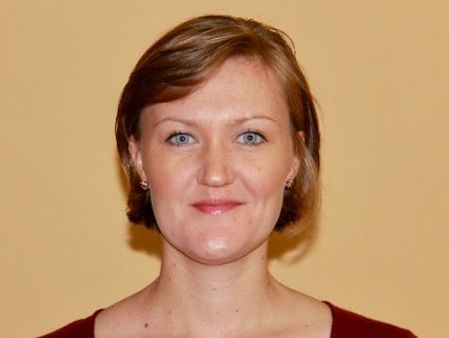|
Lots of firms pay lip service to their mentorship programs – a flashy way to entice prospective hires. But in reality there is no substance. I was fortunate enough to article at a firm that actually valued and encouraged mentorship. I suspect this had much to do with exactly who was in charge of my firm’s mentoring program. I was one of two articling students, a female Anglophone along with a male Francophone. I remember being told that there had been a debate at the firm before we started our articles. Would they pair me with a male Anglophone associate or a female Francophone associate (and vice versa for my counterpart)? Meaning, should we be paired based on language or gender? And would it matter? Well, language won out. As for whether it mattered, I can only give my impression and am not sure what my counterpart’s conclusion was. I came away feeling that the mentorship was a success, as I was comparing it to the experience that my peers did not have at other firms. I had a designated person who I could readily go to for advice on files and on career prospects without feeling intimidated. Or that I was being an annoyance. We would also chat about life over beer in the office – which was great. Maybe the better assessment, though, would have been to compare it to what it could have been. On the plus side, women now make up over half of law school students. There are many female judges. Our federal and provincial justice ministers are women and, famously, half the federal cabinet ministers are women. Even so, there are challenges unique to being a female member of our profession. Consider just these two questions:
It has since been my experience that when senior female lawyers want to proffer advice to a new-ish female lawyer, it is always on the subject of work-life balance and managing the demands of being a mother and a litigator. The message is always positive: both roles are rewarding and we can find ways to make it work. The takeaway here, at least from my perspective, is that the question of gender vs. language did matter. Gender should have won out. by Natalie Scott, Advocacy Club Member You can get in touch with the author at [email protected] or on LinkedIn, https://ca.linkedin.com/in/natalie-scott-bb230058
1 Comment
To the junior lawyer, a mentor is wise, battled-tested, and the purveyor of golden aphorisms. To the junior lawyer, a mentor is Obi-Wan Kenobi. Our assumptions about mentorship are often inconsistent with the challenges faced by junior lawyers. This makes the question of how can a junior lawyer mentor others seem nonsensical. I have found, however, that there are good opportunities for junior lawyers to mentor others. Mentoring by Example Take a junior colleague or student along with you on a simple task. I remember when Advocacy Club members, Andrew Ferguson or Margot Leduc Pomerleau, would ask me to join them on a quick motion. They did what they had to do, and I just watched. Simple stuff. During the travel to and from, they explained what they were doing and why. This seems like training, but it was not. They were sharing their experiences with me. This meant a lot to me. Just watching and listening to them brought clarity where there had been confusion. Confidence Where There Had Been Fear I now knew where to stand in Court. How to pass an order to the judge/master. How to behave without embarrassing myself. Hooray! Tagging along and watching them breeze through the tasks they had mastered made them mentors in my eyes. It’s akin to the old tale of that kid carrying the virtuoso’s guitar case to the gig. The kid feels imbued with increased talent. You can mentor others in a silent way. Keep it Simple At one time or another, my mentors have all provided the same zen-like advice: “the more I practice, the less I know.” This is not false modesty. Nor does it to undermine the knowledge a mentor possesses in practice management or substantive law. Rather, it reminds us that we never know what will come through the door. How a deal will unfold. What will happen in the courtroom. No matter the seniority. A junior lawyer already knows this is true. Articling taught us that everything is up for grabs. I believe a junior lawyer can mentor others by promoting the same practice. Pay it forward. The one standard in practice is integrity and good judgment. Everything else can be improvised. Play on. Mario’s new law practice website: www.mgiovanelaw.com I recently accepted the position of Legal Officer with the Office of the Judge Advocate General. Just now I am packing my bag to start my Basic Military Officer Qualification course in Saint-Jean-sur-Richelieu, Québec, for fifteen weeks. In this transition, I think about how I got here. I am most grateful to my mentors, who helped me throughout my application process. Here are the lessons I learned, framed as tips for mentees.
I moved to Ottawa in 2011 to commence my articles. Since then, I have had the good fortune to cross paths with several members of the Ottawa Bar with whom I established mentee/mentor relationships. They have played an integral role in my development as a junior lawyer. Based on my experience, it is essential:
Much like a personal relationship, there should be a natural chemistry between mentee and mentor. It should be evident that the mentor has a genuine interest in guiding the mentee. If that is not the case, accept the relationship for what it is, and move on. Do not force something that does not exist naturally. As junior lawyers, there are many challenging situations thrown our way every day such as:
That said and depending on the issue, it may be essential to have more than one mentor. For example, if you have established a mentee-mentor relationship at your place of employment, it would be imprudent to discuss your desire to join the military with them over lunch. Consequently, having mentors both inside and outside the place of employment is essential. From my experience, the Advocacy Club is an excellent resource to find a mentor. To conclude, I lived in the world of private practice. There the billable hour reigns. Try to remember that the time your mentor is giving you is cutting into their billable and personal time. Therefore, make sure you let your mentor know that you appreciate their time. by Lt. (N) Charlotte Porter, Advocacy Club Member by Eugene Meehan, QC, Advocacy Club Presenter
The premise of these tips is that, if you do like everyone else, you are/become everyone else. You are Somebody. You should not aspire to be average. Not vanilla. Tip #1: Who Are You? Often, you get asked the question “So, what do you do?” Here are some tips how to deal with that to present your best profile. • You have at the tip of your tongue a standard “elevator speech”, a few stock sentences that place you where you want to be. • Do not say “I’m an associate at ABC Law Firm”. This shows a lack of imagination, or that your firm is so great you are blessed by association. • When someone asks me, “So, what do you do?” I say “I help people – clients and lawyers – win at the Supreme Court. I protect their interests.” • When you can express what you do in terms of the client service/objective, you create a niche for yourself. The bottom line? Most clients don’t hire law firms. They hire an individual lawyer. People hire people. You want them to hire you. Tip #2: The Protocol for Using Business Cards Here are some tips for using business cards with new contacts:
Eugene’s email: [email protected] by Angela Beck, Advocacy Club Member
I was called to the Bar last year, 2015. Making the transition from law student, to articling student, to lawyer can be daunting and stressful. For me, mentorship has been key to making this transition as smooth as possible. Here are some of the biggest benefits of being a mentee, from my experience: As lawyers, we have to make many judgment calls every day. For the tough calls, I often find that what I really need to run an effective cost-benefit analysis is experience. Sadly, this hasn’t been distilled into pill form yet. This is where a mentor can be invaluable. A mentor can offer you perspectives on a problem gained from years of practice. Even just a few years. This can help you make a solid decision. Did you ever have a question you thought might be “stupid”? So stupid you didn’t want to ask your boss? And the six friends from law school you texted didn’t know the answer either? I have. Enter a good mentor – who doesn’t judge you for asking even the most basic questions. You couldn’t figure it out for yourself. And you are not stupid. Ergo… The job market is tough right now. Really tough. Lots of us are having trouble finding work. This can be difficult for high-achievers. A mentor can help you build your network. Maybe connect you with potential employers. Even more than that, having someone you can talk to – candidly – about your career and job prospects can be a huge help. What a benefit it is to lay your cards on the table with someone who understands the field. You can discuss where you want to be. Set realistic strategies to make it happen. Mentorship can be the key to staying positive. You can focus your efforts in the right direction. Developing a mentoring relationship can help connect you to a community. I am relatively new to Ottawa (and Ontario, for that matter). Despite that, I have never felt like an outsider. This is a testament to the Bar in Ottawa, certainly. It is also due to the impact a mentor can have in making you feel like part of a group. Mentors can help inform you on local events, attitudes and opportunities. They can put you in touch with peers. These are just the highlights. Mentors can also help you effectively negotiate your salary. This is especially helpful if that’s not something you’ve done before. They can help you develop new skills. They can direct you towards resources you wouldn’t have thought of yourself. The very fact that someone is available to listen to you and help you provides peace of mind. I am grateful for the mentorship I have received so far in my career. I hope to be able to pay it forward over the years to come. by Juliet Knapton, AdvocacyClub Co-Director
“A mentor talks with you, whereas a sponsor talks about you.”* When a senior-level lawyer advocates for you – that is sponsorship. It is different from mentor who can provide a sounding board, offer advice or be a support. Sponsors use their influence to take action on your career advancement and champion you to others. A sponsor puts some of their own “skin-in-the-game” for you. What do sponsors actually do? The legal profession is one where we hone our skills through apprenticeship. We develop our career through connections. Sponsors provide opportunities for junior associates to shine. For example, we bring them in on large files. We introduce them to key clients. Sponsors draw attention to junior associates’ successes. They help them to develop key relationships with other lawyers, clients or leaders. Sponsors connect junior associates to career advancement opportunities. For example, they can make presentations or serve in leadership positions. Sponsors provide overall career advice, as do mentors. A sponsor is also a strategic advisor who can open the eyes of a junior associate to the possibilities open to them. Who can be a sponsor? Not everyone can be a sponsor. Sponsors are typically senior members of the bar, or a subset of it. They have the respect and recognition of their peers and the broader legal community. They have to be willing to invest in the junior associate. They have to understand their role as a sponsor. And they have to be able to look at a junior associate and see the potential for growth. Why would I want a sponsor? Because a sponsor can affect your whole career trajectory. *Michael Bach of the Canadian Centre for Diversity and Inclusion |
Guest BlogWelcome to the Advocacy Club's guest blog. Here you will find mentoring tips and techniques from some of John Hollander's students and associates. Archives
November 2017
Categories
All
|
© 2022 Advocacy Club Books Inc. • All Rights Reserved • Website Design by Rebecca K. Hollander
E-mail: [email protected]
LinkedIn: linkedin.com/in/john-hollander-80687112
E-mail: [email protected]
LinkedIn: linkedin.com/in/john-hollander-80687112



 RSS Feed
RSS Feed